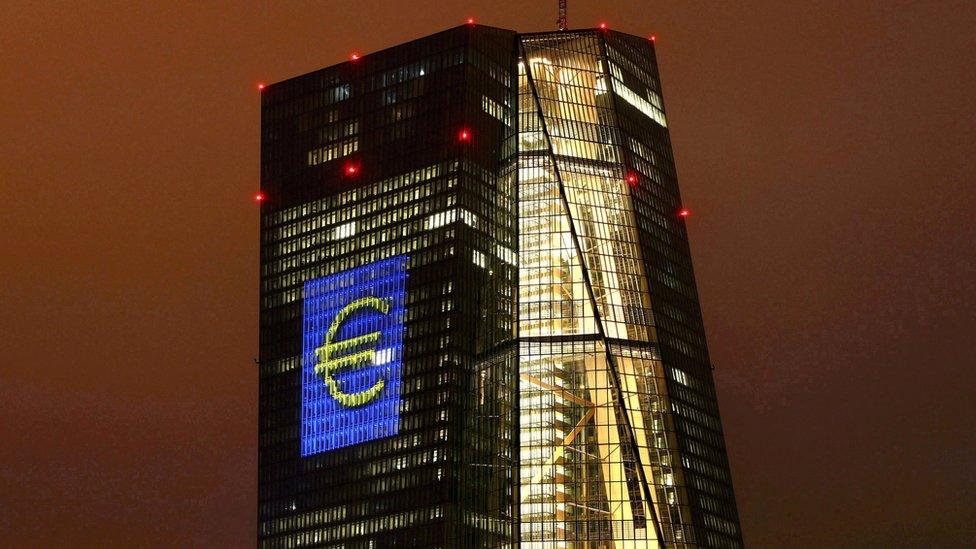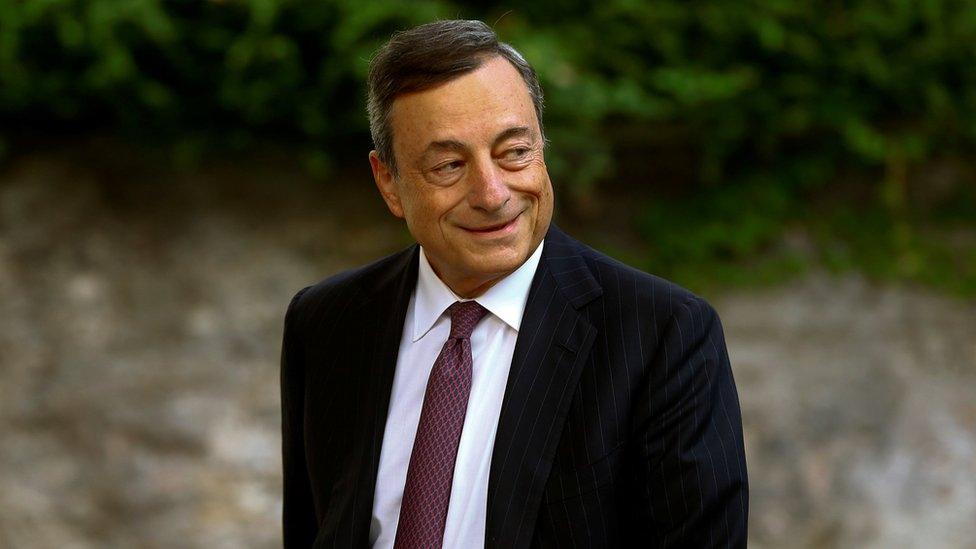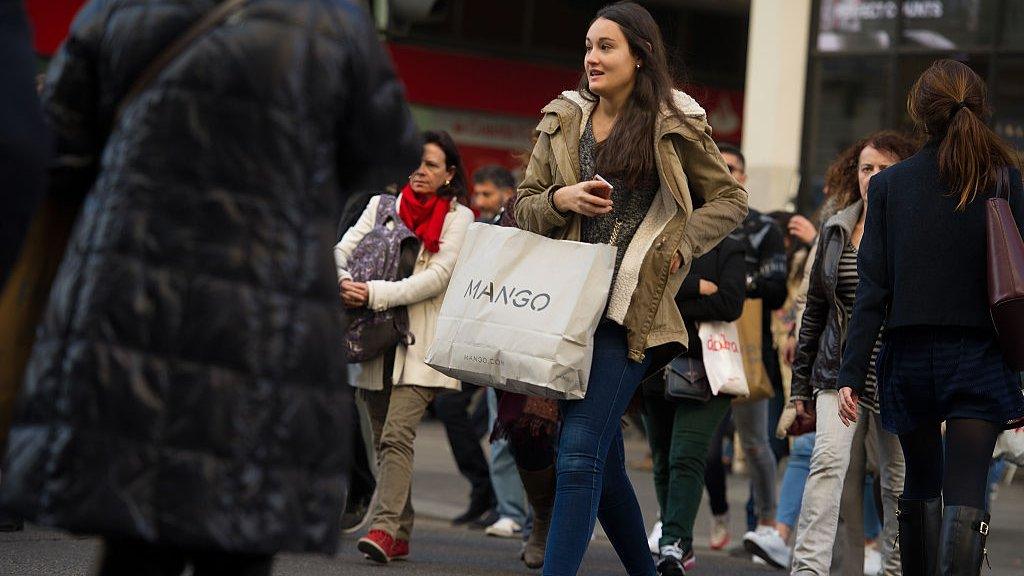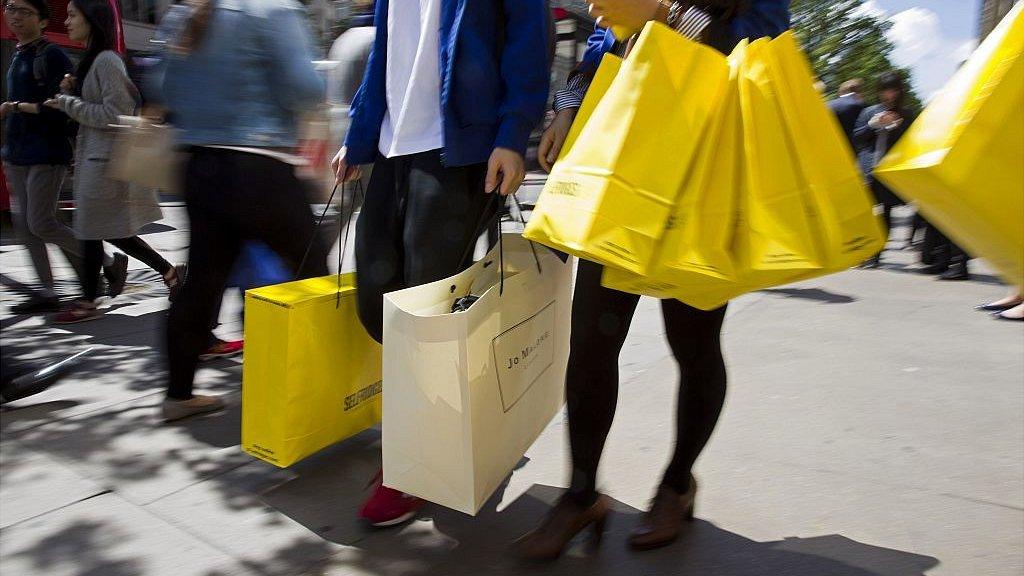ECB to halve €60bn bond-buying programme
- Published

The European Central Bank (ECB) will cut back its scheme designed to boost the economies of the eurozone.
From January of next year, it will reduce the amount of assets it buys every month to €30bn from the current level of €60bn.
The programme, which aimed to fend off the threat of eurozone deflation and help boost employment, could finish by the end of next year.
Inflation is likely to be below the 2% ECB target for the next few years.
The ECB said the reduced programme would run to the end of September 2018, "or beyond, if necessary".
If economic conditions become less favourable, or if no progress is likely to be made towards the ECB's inflation target, it could increase bond-buying again, it said.
"Our programme is flexible enough that we can adjust its size smoothly," ECB President Mario Draghi told a news conference.
There will be no sudden end to bond-buying, he said.

Analysis: BBC economics correspondent Andrew Walker
The recovery in the eurozone is gaining momentum, so the ECB will ease the pressure on the accelerator a little, but only a little.
The economy still needs a lot of help from the ECB's policies.
The quantitative easing (QE) purchases will continue and even when they finish - next September at the earliest - the ECB will have a large stock of assets that would normally be in private sector hands.
And then there are the ECB's ultra-low interest rates, with its main rate at zero and one of them below even that level.
That won't change until well after the QE purchases are over. So yes, the ECB is moving its policies back towards normal. But it has a long way to go yet.
The ECB kept the key interest rate for the countries that use the euro unchanged at 0%, and its deposit rate at -0.4%.
The central bank charges banks and other financial institutions to deposit excess money with it to encourage banks to lend.

"Today's monetary policy decisions were taken to preserve the very favourable financing conditions that are still needed for a sustained return of inflation rates towards [target]," Mr Draghi said.
He said the ECB will reinvest the principal investment from maturing bonds for an extended period after the end of the bond-buying programme, which could run to billions of euros per month.
The decision to cut quantitative easing measures was not unanimous among ECB policymakers, and a large majority favoured keeping monetary stimulus open-ended, he said.

Mr Draghi had been signalling the move for months
He was asked whether the political situation in Catalonia was a threat to financial stability in Spain and in the eurozone.
"It's very very difficult to comment about developments that change every day." Mr Draghi said.
"Of course we are following what's happening. The importance of what's happening is significant. To conclude now there would be financial stability risks would be premature, we'll have to see what's going to happen. But rest assured, we look at that with attention. Great attention," he said.
Markets muted
Mr Draghi has been signalling for months that the bond-buying scheme will be reduced.
"Mario Draghi's main goal for months now has been to gently steer markets into thinking that this tapering would come today. He's done that so markets take the announcement in their stride, which they will," said Patrick O'Donnell, Aberdeen Standard Investments senior investment manager.
One of the key provisions made by the ECB was the open-ended nature of the programme, said Claus Vistesen, chief eurozone economist at Pantheon Macroeconomics.
"We do not expect a hard stop for quantitative easing in September next year, and see the ECB buying, albeit at a reduced pace of €15bn to €20bn, until the end of 2018, at least," he said.
- Published7 September 2017

- Published7 September 2017

- Published1 November 2022
